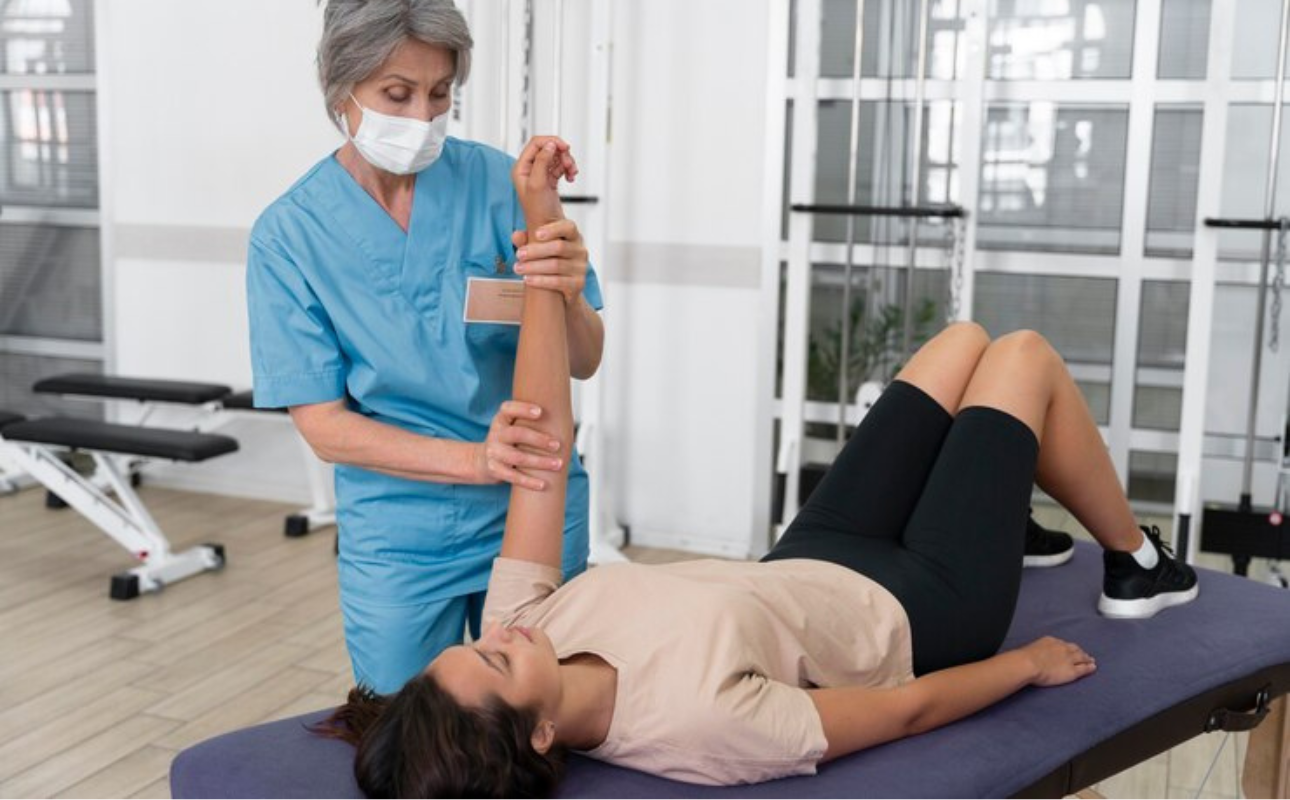
A musculoskeletal rehabilitation program is a program designed for people with impairments or disabilities due to disease, disorders, or trauma to the muscles, joints or bones. Musculoskeletal rehabilitation programs can often improve functional capacity, reduce symptoms, and improve the well-being of the patient.
Some of the conditions that may benefit from musculoskeletal rehabilitation include:
-
Amputation
-
Trauma injuries such as sprains and strains, joint dislocations, and fractures
-
Back pain
-
Osteoporosis
-
Arthritis
-
Bone tumors
-
Frozen shoulder
-
Repetitive stress injuries such as tendonitis and carpal tunnel syndrome
-
Joint injury and replacement
Musculoskeletal rehabilitation programs may include the following:
-
Exercise programs to improve range of motion, increase muscle strength, improve flexibility and mobility, and increase endurance
-
Gait (walking) retraining and methods of safe ambulation (including the use of a walker, cane, or crutch)
-
Help with obtaining assistive devices that promote independence
-
Patient and family education and counseling
-
Pain management
-
Stress management and emotional support
-
Fitting and care for casts, braces, and splints (orthoses), or artificial limbs (prostheses)
-
Ergonomic assessments and work-related injury prevention
-
Vocational counseling
